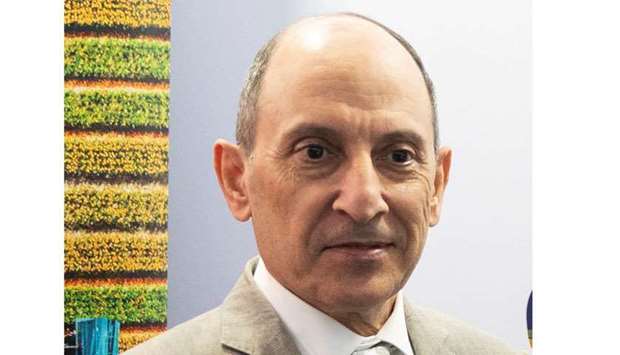The global aviation industry may benefit from research by engine manufacturers that aims to make air travel one of the “cleanest and less-polluting” mode of transportation, says Qatar Airways group chief executive HE Akbar al-Baker.
“In this field there has been a lot of research and innovations. When you look at Boeing 737 Max, 777X (which is expected to be delivered from next year) and 787s and Airbus A320 neo and 350s, they all have huge emission reduction and reduction in fuel consumption,” al-Baker said at a media event on the sidelines of IATA AGM in Seoul recently.
“I am confident about engine manufacturers putting a lot of research over the next two to three decades to ensure cleanest and less-polluting air travel,” al-Baker said.
Although many governments are very keen to talk about emissions and carbon dioxide issues, al-Baker said they are making very little investments to improve the air traffic management (ATM).
“Air space administration should be made more efficient, letting airlines less time on air than keeping them on hold for a longer time. For instance, there are times when you can do point A to B in an hour, but due to the constraints imposed by regulators and of course, and at times, due to national security requirements, that one hour becomes one and a half hour. These issues have to be properly addressed in order for us to achieve the carbon emission targets that we have set for ourselves,” noted al-Baker, who was IATA Board of Governors chairman for 2018-19.
IATA director general and CEO Alexandre de Juniac said modernising air traffic management could cut fuel burn if governments make investments to eliminate inefficiencies.
He urged governments to continue the important work for full implementation of the Carbon Offsetting and Reduction Scheme for International Aviation (CORSIA) agreed through the UN’s International Civil Aviation Organisation (ICAO).
CORSIA is the first global carbon pricing instrument for an industry sector. It will cap net CO2 emissions from international aviation at 2020 levels, thereby achieving carbon-neutral growth, de Juniac said.
“Airlines know that effective plans to cut emissions are critical to earning their licence to meet the growing demands for air connectivity. In fact, the strongest demand growth is in the developing world, reflective of aviation’s contribution to 15 of 17 of the UN’s Sustainable Development Goals.
“CORSIA sets the stage by capping emissions at 2020 levels. Between 2020 and 2035 it will mitigate over 2.5bn tonnes of CO2 and generate at least $40bn in finance for carbon reduction initiatives,” de Juniac said.


